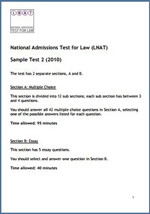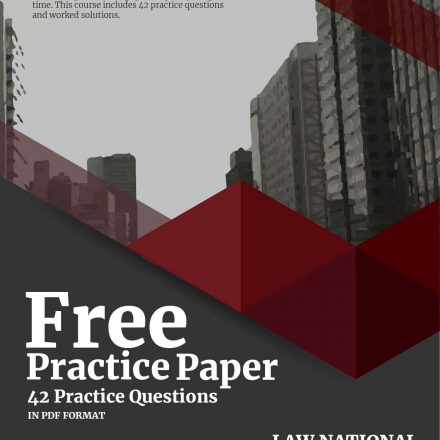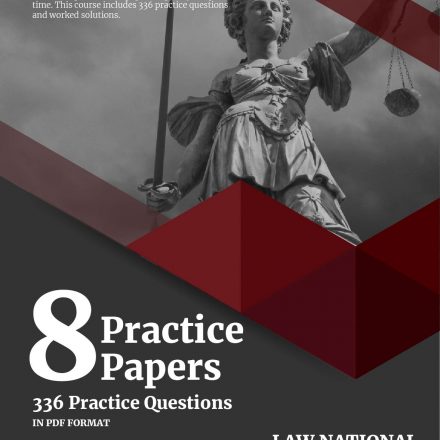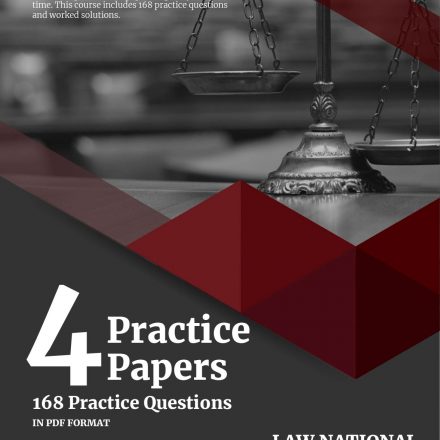When I first heard about the LNAT (Law National Aptitude Test), it felt overwhelming. The test is not about legal knowledge but about assessing your critical thinking and reasoning skills. Preparing for it seemed like a mammoth task—until I connected with a tutor who’s been guiding students through the LNAT for the past 15 years. His experience and expertise helped me develop a clear, efficient strategy, and I want to share that journey with you.
Why is the LNAT Important?
The LNAT is crucial for students aiming to secure a spot in some of the best law schools in the UK. Universities like Oxford, King’s College, and Bristol use LNAT scores to evaluate applicants beyond just grades.
This means that your performance in the LNAT can tip the scales in your favor, so the right preparation is essential.
Step 1: Understand the Test Format
Before diving into preparation, it’s vital to know what the LNAT entails. The test is split into two sections:
- Multiple Choice Questions (MCQ): 42 questions based on 12 argumentative passages.
- Essay Writing: You choose one out of three essay prompts and write a well-argued response within 40 minutes.
From my expert tutor, I learned that you can’t wing this exam. You need to read widely and develop your ability to analyze complex arguments.
Pro Tip from the Expert: Focus on quality over quantity when practicing. Pick one newspaper or magazine like The Economist or The Guardian and analyze one article daily. This will not only help with your comprehension but also improve your ability to spot arguments and biases.
Step 2: Develop Your Time Management Skills
Time is your enemy in the LNAT, especially in the essay section. My mentor drilled into me the importance of practicing under timed conditions. He suggested taking full practice tests once a week leading up to the exam. This helps you get comfortable with the pressure of time constraints.
Pro Tip from the Expert: When practicing essays, spend 5-10 minutes brainstorming and planning. This approach ensures your essay has a clear structure and argument, saving you time on edits later.
Step 3: Practice Critical Thinking
The LNAT is not just a test of your reading ability but also how critically you can evaluate the information presented. While practice papers are helpful, my expert advised taking it a step further:
- Debate with friends: Choose a controversial topic, research both sides, and argue each side alternately.
- Play devil’s advocate: When reading an article, deliberately question the writer’s assumptions and conclusions.
Pro Tip from the Expert: The LNAT rewards depth of understanding. Rather than simply reading a passage, ask yourself questions like “What’s the author’s hidden agenda?” or “What assumptions underlie this argument?”
Step 4: Master Essay Writing
The essay is where you can shine. It’s your opportunity to showcase your ability to think critically, argue persuasively, and write clearly. My LNAT tutor emphasized that clarity is key. Law schools aren’t looking for convoluted, jargon-filled essays; they want concise, well-structured arguments.
Pro Tip from the Expert: Break down your essay into three parts: Introduction, Argument, and Conclusion. In the introduction, define the question and your position. In the argument section, present 2-3 well-developed points with evidence. Finally, summarize your stance in the conclusion, tying it back to the original question.
Step 5: Stay Calm and Collected
One of the best pieces of advice my LNAT tutor gave me was to approach the test with a clear and focused mind. He’s seen students panic and lose out on valuable points, simply because they were too anxious. He always told me, “You’ve prepared for this. Trust yourself.”
Pro Tip from the Expert: Before the test, practice mindfulness techniques, such as deep breathing or short meditation. It will help center you, clear any mental fog, and boost your performance on the day of the exam.
Final Thoughts: Preparation is Key
Preparing for the LNAT doesn’t have to be a grueling process if you break it down into manageable steps. As a student, I found that the guidance of a seasoned expert was instrumental in building my confidence and honing my skills. With the right strategies, like understanding the test format, practicing critical thinking, and improving time management, success in the LNAT is within your grasp.
If you’re preparing for the LNAT, don’t hesitate to seek help from those who’ve been through the process. A tutor with 15 years of experience will know exactly how to guide you through this challenging test—and that kind of support can make all the difference.











